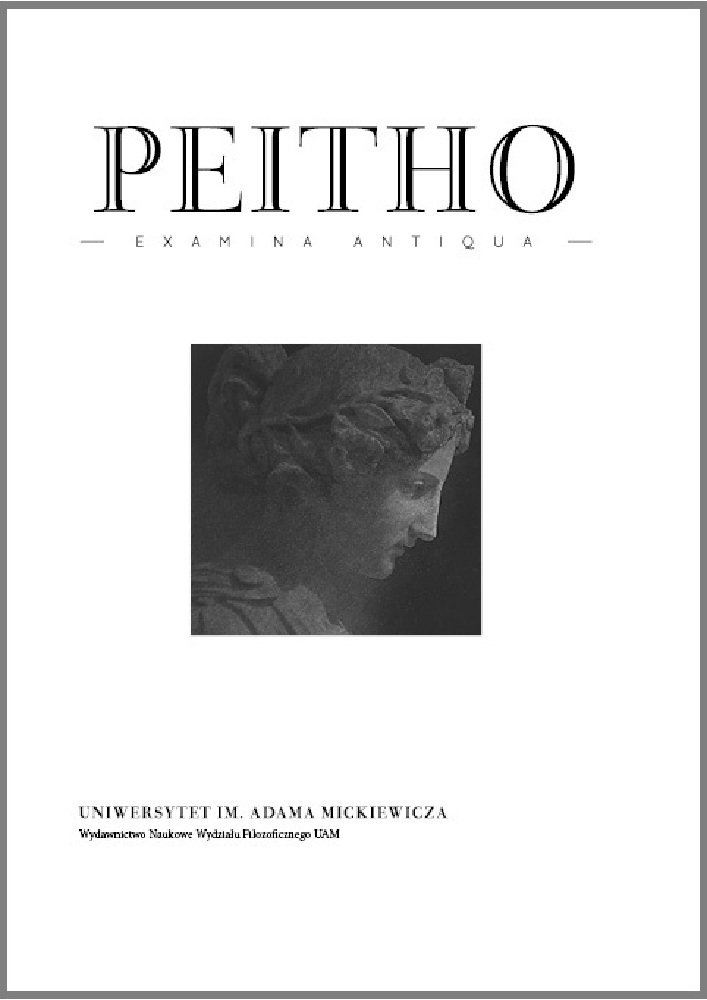Abstract
The article examines how Hegel’s negative view of Byzantium is different from the Enlightenment’s critique and especially from Voltaire’s criticism of medieval history. In order to account for the Hegelian specificity of interpretation an effort is made to translate the chapter on Byzantium from the Philosophy of History in terms of the analysis of the Phenomenology of the Spirit and, more precisely, on the basis of the chapters on sensible certitude and on the domination and servitude. Considering that for Hegel every philosophical school possesses an autonomous value, one has to wonder why the Byzantine moment of the Spirit is destined to stagnation. The question about Hegel’s Neoplatonism, especially his affiliation with Proclus’s system, shows how the distance separating the Hegelian system from the Proclusian one explains the inadequacy of the latter as to drawing the consequences from the Byzantine spiritual stagnation.
References
Arabatzis, G., 2000, “O Xέγκελ και το Bυζάντιο, κατά τις παραδόσεις του Γερμανού φιλοσόφου, Mαθήματα φιλοσοφίας της Iστορίας (Bερολίνο 1830-1831)” [= Hegel et Byzance selon les leçons du philosophe allemand sur la philosophie de l’histoire (Berlin, 1830-1831)], K΄ Πανελλήνιο Iστορικό Συνέδριο 28-30 Mαΐου 1999, Thessalonique, pp. 61-69.
Arabatzis, G., 2003, “Hegel and Byzantium (With a Notice on Alexandre Kojève and Scepticism)”, Philosophical Inquiry 25, pp. 31-39.
Arabatzis, G., 2013, “La perception philosophique du sujet byzantin”, in: G. Arabatzis (éd.), Marges de la philosophie byzantine, Athènes, pp. 75-91.
Arabatzis, G., 2013, “Introduction. La philosophie byzantine est une affaire de modernité”, Byzantinische Forschungen 31, pp. XI-XXVI.
Breton S., 1969, Philosophie et mathématique chez Proclus, suivi de Principes philosophiques de mathématiques, par N. Hartmann, G. de Pesloüan (trad.), Paris.
D’Hondt, J. (dir.), 1974, Hegel et le siècle des Lumières, Paris,
Gueroult, M., 1988, Histoire de l’histoire de la philosophie, Vol. II: En Allemagne, de Leibniz à nos jours, Paris.
Hegel, G.W.F., 1969, Science de la logique, I. Logique de l’être, S. Jankélevitch (trad.), Paris.
Hegel, G.W.F., 1977, La phénoménologie de l’esprit, I, J. Hyppolite (trad.), Paris.
Hegel, G.W.F., 1987, Leçons sur la philosophie de l’histoire, J. Gibelin (trad.), Paris.
Hegel, G.W.F., 2008, La phénoménologie de l’esprit, J.-P. Lefebvre (trad.), Paris.
Kojève, A., 1973, Essai d’une histoire raisonnée de la philosophie païenne III. La philosophie hellénistique. Les néo-platoniciens, Paris.
Kojève, A., 1947, Introduction à la lecture de Hegel. Leçons sur la «Phénoménologie de l’Esprit» professées de 1933 à 1939 à l’École des Hautes Études, Paris.
Kouznetsov, V., 1974, “La philosophie de l’histoire chez Hegel et chez Voltaire”, in: D’Hondt (1974), pp. 25-50.
Opsomer, J., 2012, “In defence of Geometric Atomism: Explaining Elemental Properties”, in: Wilberding, Horn (2012), pp. 147-173.
Pelegrinis, T.N., 2013, “Magie et commentaire dans l’orient chrétien”, Byzantinische Forschungen 31, pp. 1-24.
Stern, R., 2006, “Hegel’s Doppelsatz: A Neutral Reading”, Journal of the History of Philosophy 44, pp. 235-266.
Wilberding, J., Horn, C. (eds.), 2002, Neoplatonism and the Philosophy of Nature, Oxford.
License
Peitho provides immediate open access to its content on the principle that making research freely available to the public supports a greater global exchange of knowledge.
